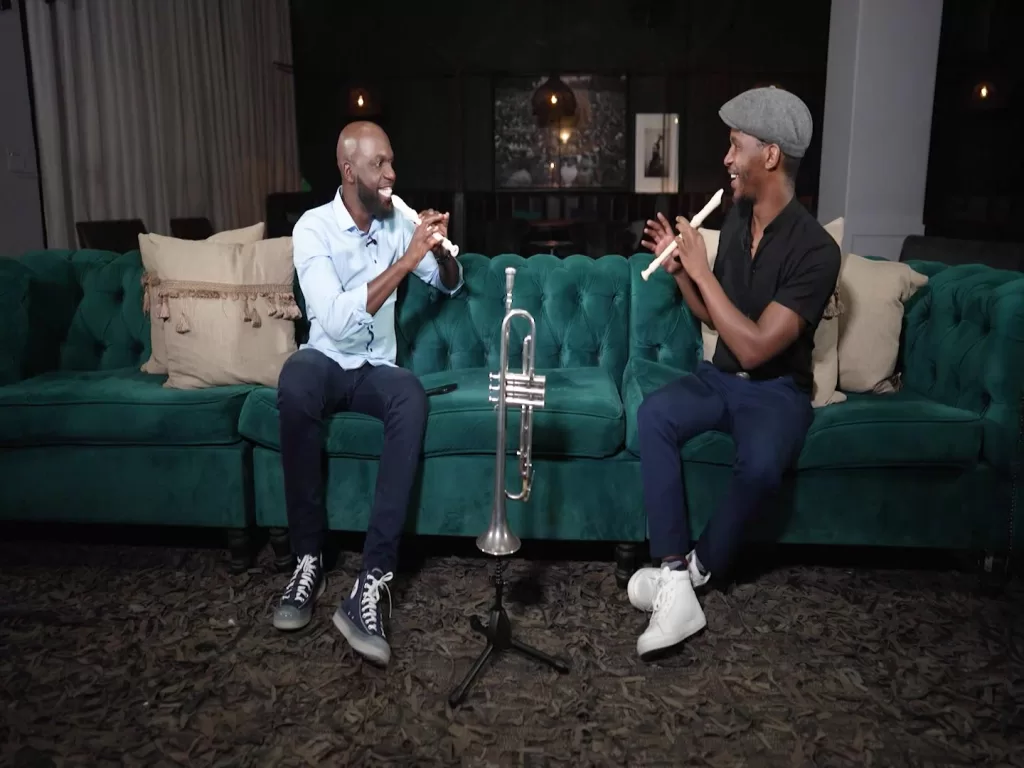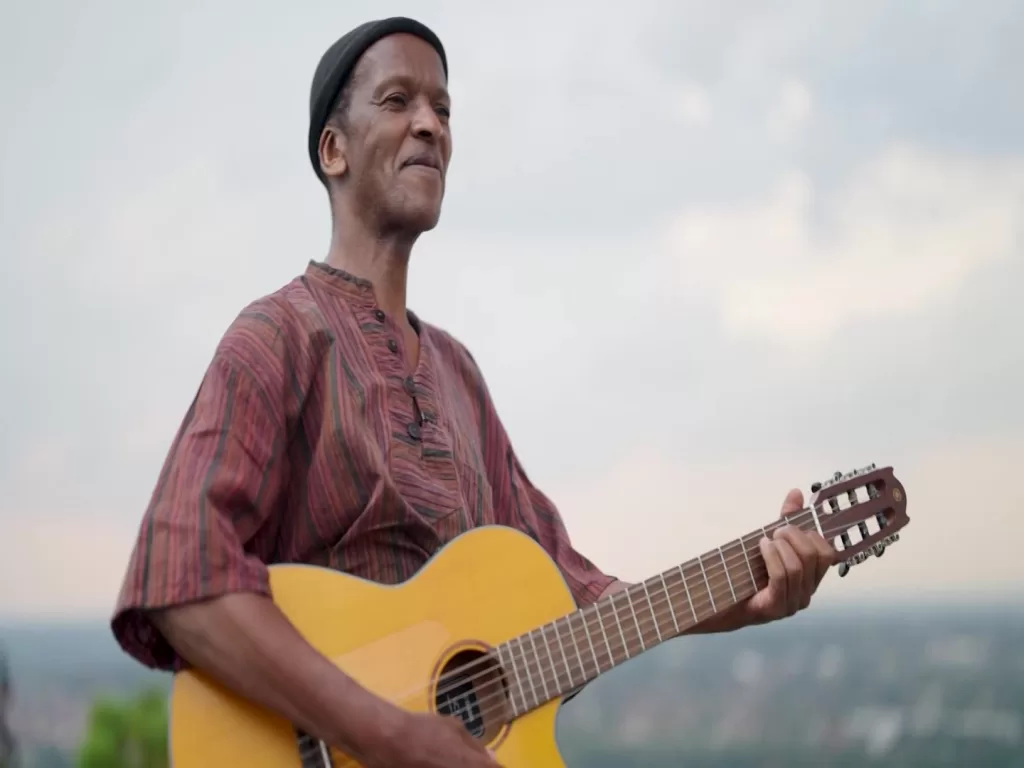In the latest episode of African Voices Changemakers, CNN’s Larry Madowo meets two boundary-pushing jazz musicians. First, Mandla Mlangeni tells his story of why he blends social consciousness into his riveting music and then Louis Mhlanga discusses the magic behind captivating guitar strums.
Mlangeni is a trumpeter, composer and band leader whose story began during the anti-apartheid movement. He tells Madowo, “The earliest memory of music with me is with my father hunched on his back going to all the protest marches. The anti-apartheid struggle was a deeply musical time. Song was part of resistance.” He continues, “I was born during the height of like, resistance. And I think that actually also became part of my psyche, the struggle and how I articulate the struggles,” The award-winning composer discusses how performing has helped him deal with his difficult history, having lost his father at only four years old, saying “Making music for me is a way of speaking to myself. It’s putting all my reflexes together and actually trying to make something work.”
Mlangeni describes the trumpet as “a very versatile instrument,” adding, “it has that very, very big sound. And stylistically it can do anything that your imagination desires.” He tells CNN his idol is Hugh Masekela, the father of South African Jazz, stating, “The greatest lesson that I’ve learned from him is finding meaningful ways of how we can tell our stories through the music and not trying to be like anybody else because that would be a disservice to us.” The band leader has performed and collaborated with artists both locally and internationally and tells Madowo about the recent release of the album ‘Oratorio for a Forgotten Youth’. When he is not touring with various bands and composing, Mlangeni can be found bringing music to those in need. His innovative project ‘Afrikan Freedom Principle’, received an onbeat accelerator grant in 2020, offering a platform for musicians and artists to connect and collaborate online.
Madowo also meets Louis Mhlanga in Johannesburg, considered of the best African guitarists of our time and known for his electrifying guitar riffs.His brothers introduced him to the instrument and his icon Jimi Hendrix whose, “approach to the music and the ideas that he was introducing, the sustain of the guitar he used and the feedback, all those songs that he brought out” inspired him. He officially got his start in the 1970s in Zimbabwe. Despite the times of struggle, South Africa is where he collaborated with some of the country’s biggest musical acts at the time, from Sipho Mabuse to Miriam Makeba and Vusi Mahlasela, and where he developed his own sound. “I must make my own music. That was my turning point,” he states.
He continues, “So slowly when you know, injected that idea into my mind, it started growing within me and then I realized something just came up, a song came up, another one came up and kept on growing. The rest is now history.” Another defining moment for him was playing at Nelson Mandela’s presidential inauguration in 1994. He says, “The music back then, it had a lot of message, which as building people’s thoughts, people’s behaviour, which was bringing people together.”The guitarist has a peculiar style that is a seamless blend of jazz, rock, Afro-fusion and traditional Zimbabwean sounds, admitting, “I listen to some of the Chinese music, Indian music, you name it all. It’s a melting pot for me.” He became a student of the guitar styles of Southern and Western Africa. “Africa it’s wide and it’s got a lot of variety. So, people may be listening, I think to one particular side, but there’s more which means Africa still has a lot more to offer,” Mhlanga says.
More than half a century into performing and composing his own music, he’s still looking to inspire: “It’s been a long journey, you know, coming all the way back and arriving where I am today. It’s unbelievable but I’m still here and sharing the music with the rest of the world.”

African Voices Changemakers airs on CNN International at the following times:
Saturday 20th July 2024 at 0730 WAT and 1100 WAT
Sunday 21st July 2024 at 0330 WAT and 1800 WAT
Monday 22nd July 2024 0300 WA





























